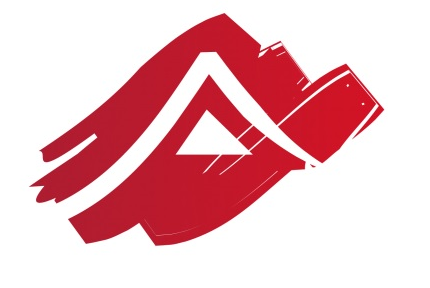Currently we experience significant shifts in the global economy. Pandemics put most of our lives on pause through lockdowns; we had to get used to the new normal: zoom meetings in not-so-ideal places or getting to know new teammates via video calls. After battling Covid-19 came the time during which employees are forced to learn how to navigate through economies that experienced crucial changes. Companies have to consider alterations in how to organize the work due to all the global events. Our world is everchanging and so are tendencies in the business environment.
Recently, the AIHR (Academy to Innovate HR) came up with an interesting survey regarding HR trends in 2022. The Academy focused on several trends that, in their opinion, will have the biggest impact on the human resources landscape.
As was mentioned earlier due to pandemics we switched from working in an office to performing our work-related tasks at home. Working from home turned out to be vastly efficient. 77% of respondents stated that remote work increased their productivity and 30% informed that they can perform more tasks in less time[1]. Employees prefer working in a flexible environment and if a company cannot provide it, 71% of them decided to change their place of employment[2]. It becomes necessary for corporations to change the organization of the way their teams operate; focusing on making sure that their environment will not dwindle further due to remote work. HR’s job will be to secure an innovative and collaborative style of work between teams. Moreover, people tend to change jobs more often than before, up to every 4 years. „Workers now switch jobs an average of 5.7 times in their careers”[3]. Companies should be aware that very few employees stay committed to one firm throughout their whole career. Employers ought to focus on making sure that workers will gain new experiences and knowledge while further developing their career paths.
Another visible result of pandemics is that Covid-19 forced companies to use the talent available in a firm instead of looking for it in other places. What we can notice nowadays is a significant talent shortage in the labour market. To overcome this issue AIHR proposes to build „internal talent marketplaces”. Some of the companies go even further by collaborating with other corporations to expand their talent marketplace. Such measures help firms in finding the talent needed in a wider variety of capabilities. Harvard Business School report noticed that 60% of companies prefer to borrow talent from another firm rather than hire new ones[4].
Change is inevitable and what corporations must do to thrive in the market is to accept it and prepare for those shifts they can foresee. HR’s role during this time is not only to make sure that corporations are ready to face any transformation but also to drive such change. To perform as well as possible Human Resources need to be in close contact with other departments so everyone can be suitably prepared for anything the future might bring. The most noticeable change nowadays in companies worldwide is the development of new technology. According to the information mentioned by AIHR: „The AI sector has grown by a whopping 270% in the last four years — a trend that is not showing any signs of slowing down for 2022 and beyond”[5]. Because of the talent shortage, mentioned earlier technology is easily available for corporations hence bigger automation of certain job tasks. 38% of worker time in all industries can be automated, and the percentage in the retail industry is 2 pp higher. In the case of the consumer goods industry, it is possible to automate 50% of the worker’s time. Artificial Intelligence can help with efficiency in a workplace, more than 30% of global employees stated that they waste half of their day or even more doing tasks AI could do faster. AI is often used during the recruiting process to help find the most fitting talent, however, HR professionals need to learn how to operate with modern technology to make sure that AI achieves the goal. HR employees ought to understand algorithms and how to use the data in practice. 41% of respondents working in HR stated that they possess the necessary skills but the rest needs to expand their skills pool[6].
The shifts visible in the global work environment include also diversity and inclusion. However, D&I is too narrow of an aspect for modern society. We can notice a switch from diversity and inclusion to DEI, which stands for ‘diversity, equity, and inclusion’. Nevertheless the change, employees from underrepresented groups still feel as if they do not belong in their work environment. Oftentimes corporations talk about how diverse and inclusive they are but it is not always true when it comes to real life. „75% of workers would like their organization to reflect the diversity of the customers and community the company serves, but only 62% believe their company does so in real life”[7]. HR has to make sure that the company meets society’s expectations regarding DEI and that its strategy includes all the necessary values that fit well with the modern, diverse world.
To conclude, AIHR’s report showcased the most visible trends in the workplace in 2022. The global pandemic of covid-19 forced various changes that are here to stay. What professionals ought to do is to accept those shifts and try to apply them in their lives. The HR department will perform a key role in making sure that employees, companies and strategies are well prepared for any future.
Consultant Alhambra International
[1]AIHR, „HR Trends Report 2022”, 2021: HR Trends Report 2022 (aihr.com), page: 9.
[2] Ibidem
[3] Ibidem, p. 13.
[4] Ibidem, p. 12.
[5] Ibidem, p. 18.
[6] Ibidem, p. 20.
[7] Ibidem, p. 21.



